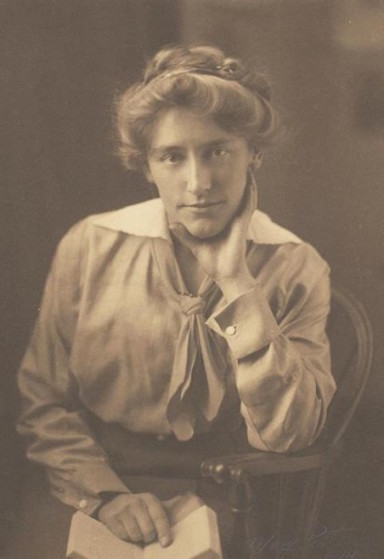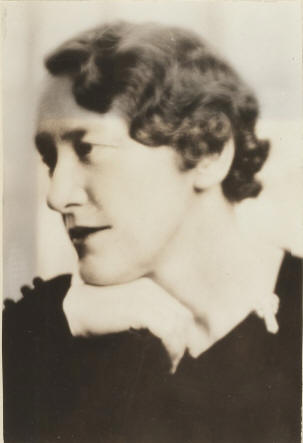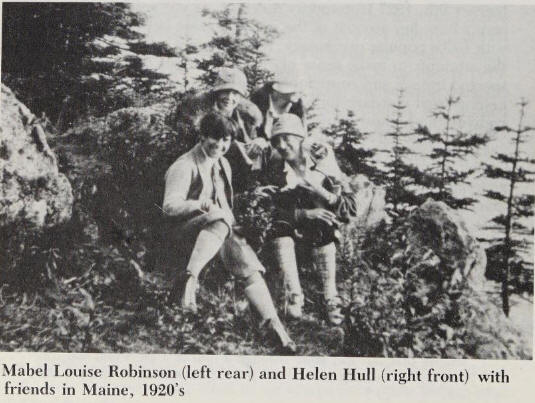

Partner Mabel Robinson
Queer Places:
Wellesley College (Seven Sisters), 106 Central St, Wellesley, MA 02481
Michigan State University, 220 Trowbridge Rd, East Lansing, MI 48824, Stati Uniti
Barnard College (Seven Sisters), 3009 Broadway, New York, NY 10027
Columbia University (Ivy League), 116th St and Broadway, New York, NY 10027
322 W 106th St, New York, NY 10025
Bayberry Farms,
North Brooklin, Brooklin, ME 04616, Stati Uniti
878 West End Ave, New York, NY 10025
 Helen
Rose Hull (March 28, 1888 – July 15, 1971) is remembered as a novelist, feminist, and English professor.
She was a member of the Heterodoxy Club.
Helen
Rose Hull (March 28, 1888 – July 15, 1971) is remembered as a novelist, feminist, and English professor.
She was a member of the Heterodoxy Club.
Beginning her teaching career at Wellesley College and Barnard College, Hull went on to teach creative writing at the Ivy League institution, Columbia University for forty years with her lifelong partner, Mabel Louise Robinson.[1][2]
Hull was born in Albion, Michigan, as the eldest child of her family on March 28, 1888 to Warren C. and Louise Hull. Her father, was a former teacher and school superintendent of the Albion Public Schools from 1887 to 1898. At a young age, Helen and her brother became financially responsible for their family.[3] Helen went to Lansing High School and for her college education she went to Michigan State University. After graduating, she became a school teacher herself.
In 1914, she began her career as a writer, which lasted for over fifty years. Her first published piece was a one-act play in the suffrage magazine, The Woman's Journal.[4] Throughout her career, Hull managed to publish seventeen novels and sixty-five short stories. Her short stories appeared in more than fourteen different American magazines, including Colliers, Century, Saturday Evening Post, Harper's, Cosmopolitan, and Ladies Home Journal. The topic of her writing included familial relationships, gender differences, and social issues, including race and women's economic status.[4] Despite being involved in radical politics early in life, Hull mainly addressed issues through the stories of her characters.[4] It is speculated that her decreased involvement in the political scene was due to her publisher's concern that Hull's lesbianism would be "detrimental to her career."[[1]

In the 1920s she was living at 322 West 106th Street.
Hull died in 1971 at the age of 83.[1]
Hull's first novel, Quest, received generally positive reviews upon its publication in 1922.[4] Another one of her notable novels, Islanders, was published in 1927 and is set in the Midwest during the mid-19th century to World War I. It tells the story of a single woman who has to take care of her parents, her siblings, and her siblings' children. Through the growth of this intelligent and inventive woman, Hull poses important questions about the role of a woman during this time period.[2]

Her fictional pieces were praised by noteworthy sources including the New York Times, the New York Herald Tribune, and the Boston Transcript.[4]
My published books: